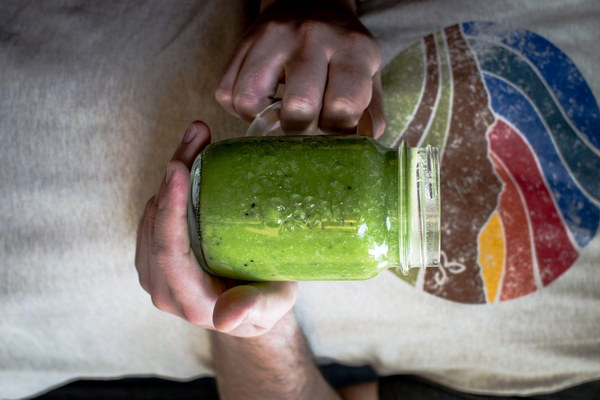Defy Aging A Comprehensive Approach to Anti-Cancer, Anti-Tumor, and Anti-Aging Strategies
In today's fast-paced world, where the demand for longevity and health is on the rise, the term anti-aging has become synonymous with a variety of products, treatments, and lifestyles. However, it is crucial to understand that anti-aging does not solely revolve around looking young. It encompasses the broader aspect of maintaining a healthy and disease-free life. One such aspect is the fight against cancer, tumors, and the aging process itself. This article aims to provide a comprehensive overview of anti-cancer, anti-tumor, and anti-aging strategies that can help you live a healthier, longer life.
1. Understanding Cancer and Tumors
Cancer is a complex disease characterized by the uncontrolled growth of abnormal cells. These cells can form tumors, which can be benign (non-cancerous) or malignant (cancerous). Malignant tumors have the potential to spread to other parts of the body, a process known as metastasis. Various factors contribute to the development of cancer, including genetics, lifestyle choices, environmental exposure, and chronic inflammation.
2. Anti-Cancer Strategies
a. Diet: A balanced diet rich in fruits, vegetables, whole grains, lean proteins, and healthy fats can help reduce the risk of cancer. Some foods, such as berries, cruciferous vegetables, garlic, and green tea, have been found to have anti-cancer properties.
b. Exercise: Regular physical activity can lower the risk of developing cancer by improving immune function, reducing inflammation, and maintaining a healthy weight. Aim for at least 150 minutes of moderate-intensity aerobic exercise or 75 minutes of vigorous-intensity aerobic exercise per week.

c. Stress management: Chronic stress can increase the risk of cancer and accelerate the aging process. Techniques such as meditation, yoga, and deep breathing exercises can help manage stress levels.
d. Avoiding tobacco and alcohol: Smoking and excessive alcohol consumption are major risk factors for cancer. Quitting smoking and moderating alcohol intake can significantly reduce the risk of developing cancer.
e. Screening and early detection: Regular cancer screenings, such as mammograms, colonoscopies, and pap smears, can help detect cancer early when it is more treatable.
3. Anti-Tumor Strategies
a. Immune system support: Keeping the immune system strong can help fight off tumors. This can be achieved through a healthy diet, regular exercise, and adequate sleep.
b. Alternative therapies: Some alternative therapies, such as acupuncture, herbal remedies, and mind-body practices, may help manage tumor growth and alleviate symptoms.
c. Targeted therapies: Targeted therapies are medications that specifically target cancer cells without harming healthy cells. These therapies are becoming increasingly popular in cancer treatment.
4. Anti-Aging Strategies
a. Telomere maintenance: Telomeres are the protective caps at the ends of chromosomes that shorten as cells divide, contributing to aging. Maintaining telomere length through lifestyle choices can slow down the aging process.
b. Oxidative stress reduction: Free radicals are unstable molecules that can damage cells and contribute to aging. Consuming antioxidants, such as vitamin C, vitamin E, and selenium, can help reduce oxidative stress.
c. Sleep: Adequate sleep is crucial for overall health and longevity. Aim for 7-9 hours of quality sleep per night.
d. Cognitive stimulation: Engaging in activities that challenge the brain, such as puzzles, reading, and learning new skills, can help maintain cognitive function and reduce the risk of age-related cognitive decline.
In conclusion, the fight against cancer, tumors, and aging requires a multifaceted approach that includes diet, exercise, stress management, and regular health screenings. By adopting these anti-cancer, anti-tumor, and anti-aging strategies, you can improve your quality of life and extend your lifespan. Remember, it is never too late to start making positive changes for a healthier future.









